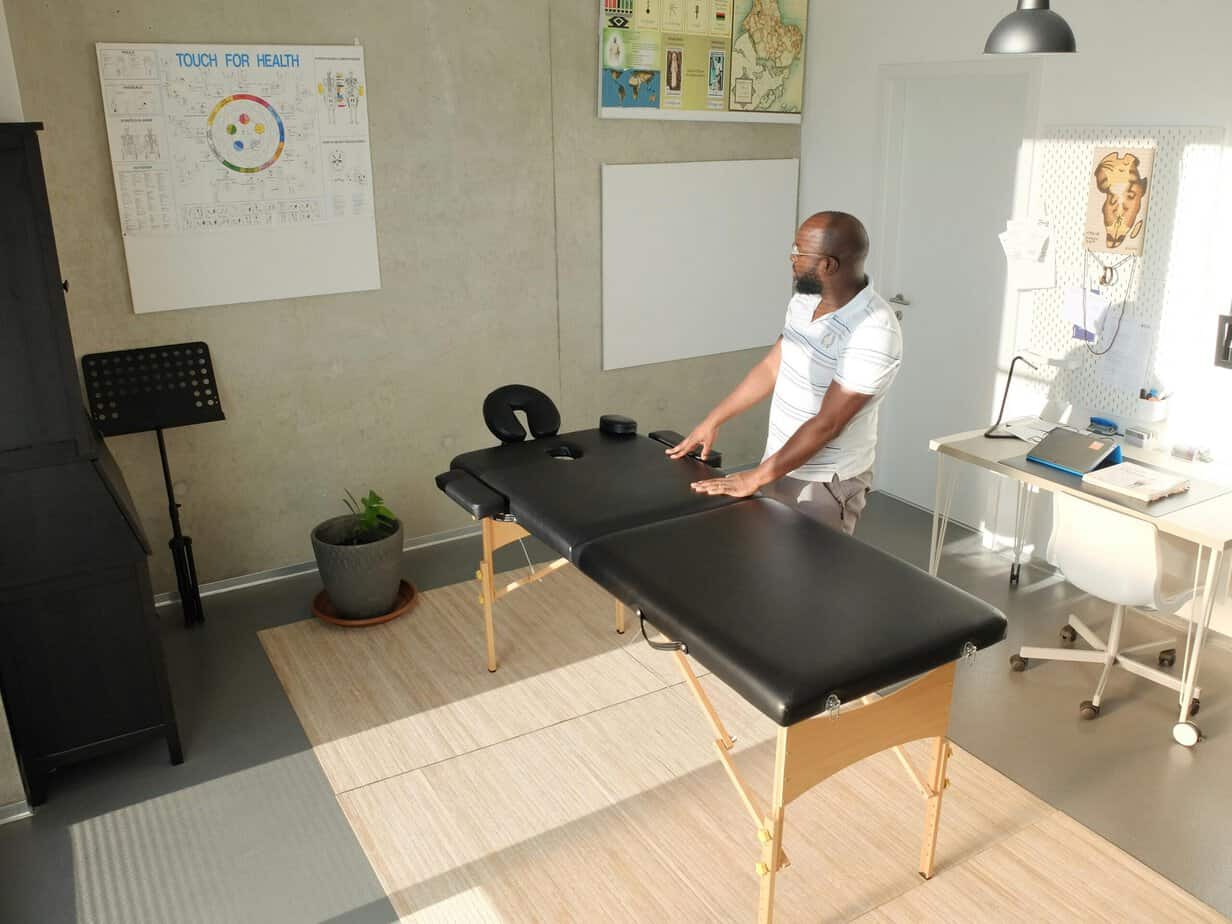
BY
|
Physio Tax Deductions: A Complete Guide for Physiotherapists in Australia
As a physiotherapist in Australia, you have a unique set of expenses that can be claimed as tax deductions. Understanding what you can claim helps reduce your taxable income and ensures you’re not missing out on any entitlements.
This guide will walk you through the most common deductions available, practical tips for record-keeping, and answers to frequently asked questions. Additionally, managing tax affairs is crucial, as costs related to consulting with accountants and purchasing tax materials can be claimed as deductions.
Tax Deductions for Physios & Medical Professionals
As a medical professional, understanding tax deductions is crucial to minimise your tax liability and maximise your refund. Tax deductions are expenses that can be subtracted from your taxable income, reducing the amount of tax you owe.
Medical professionals can claim various tax deductions, including work-related, self-education, and travel expenses.
To claim a tax deduction, the expense must be directly related to your work as a medical professional. This means that the expense must be necessary to perform your job duties or earn your income.
For example, if you are a doctor, you can claim a deduction for medical equipment, uniforms, and travel expenses related to your work.
It’s also important to keep accurate records of your expenses, including receipts, invoices, and bank statements. This will help you to claim the correct amount of tax deductions and avoid any potential issues with the Australian Taxation Office (ATO).
Note: Digital copies of receipts can be used for documentation instead of physical receipts.
Work-Related Travel Expenses
Physiotherapists often need to travel between locations, such as clinics, hospitals, or patients’ homes. If this travel is directly related to your work, it may be deductible. You can claim expenses for:
- Travel between multiple workplaces: If you work at more than one location during the day, the cost of travelling between these places is deductible.
- Carrying bulky equipment: If you’re required to transport heavy or bulky items (like a portable treatment table) that can’t be stored at work, travel from home to work becomes deductible.
- Work-related car expenses: You can claim car-related costs like fuel, registration, insurance, and maintenance. There are two methods to calculate this: the cents per kilometre method or the logbook method.
However, if you’re simply commuting from home to your regular place of work without carrying bulky equipment, these travel costs are not deductible as they are considered a private expense.
| Travel Deduction Methods | Description |
| Cents per kilometre | Claim up to 5,000 km per year at a set rate (currently 78 cents per km). No logbook is required, but you must be able to show how you calculated the kilometres. |
| Logbook method | Keep a logbook for 12 weeks to determine the proportion of work-related car use. Claim actual expenses like fuel and insurance based on this percentage. |
Tools, Equipment, and Uniforms
As a physiotherapist, you may need specific tools and equipment for your job. These items are generally tax-deductible if they are used for work purposes. You can claim:
- Tools and equipment: Items like stethoscopes, portable treatment tables, laptops, or software used for patient management.
- Protective clothing: If you’re required to wear protective gear such as gloves or masks at work, these costs can be claimed.
- Uniforms: If your employer requires you to wear a specific uniform (such as a branded polo shirt), both the purchase and laundry costs are deductible. Laundry and cleaning costs for work-related clothing can be deducted as well. However, you cannot claim a deduction for conventional clothing that you wear to work, even if required by your employer.
If an item costs more than $300, it must be depreciated over several years instead of being claimed in full in one year.
Professional Development and Self Education Expenses
Physiotherapists must often stay up-to-date with the latest practices through professional development courses. The good news is that many of these expenses are deductible.You can claim:
- Conferences and seminars: Registration fees are deductible if you attend industry conferences or seminars that relate directly to your current role. Travel costs like airfares and accommodation may also be claimed if the event is held outside your local area.
- Self-education courses: Courses that improve your skills or knowledge in physiotherapy are deductible. For example, these expenses can be claimed if you take a course on advanced musculoskeletal techniques or sports rehabilitation.
Additionally, medical registration fees, along with other professional development expenses, are also deductible.
However, if part of the course is personal (for example, adding a holiday after attending a conference), only the portion related to work can be claimed.
Home Office Expenses
Many physiotherapists do some administrative tasks from home—whether it’s scheduling appointments or maintaining patient records. If this applies to you, deductions are available for home office running costs. You have two options for claiming:
- A fixed rate of 67 cents per hour worked at home.
- Calculating actual costs like electricity and internet expenses based on the proportion of your home used for work.
If you choose the second option, you must keep detailed records of your expenses throughout the year.
Income Protection Insurance and Memberships
Professional indemnity insurance is essential for physiotherapists and is fully tax-deductible. Other professional costs that can be claimed include:
- Income protection insurance, provided it’s not paid through superannuation.
- Membership fees for professional associations such as the Australian Physiotherapy Association (APA) and the Australian Medical Association (AMA). Overall, professional membership fees with medical associations are considered tax-deductible expenses.
These expenses help protect your income and ensure you comply with industry standards.
Non-Deductible Expenses
While there are many deductions available to physiotherapists, not every expense qualifies. Here are some examples of non-deductible items:
- Commuting from home to your regular workplace, unless you carry bulky equipment that can’t be stored at work.
- Childcare costs while you’re working.
- General fitness expenses, such as gym memberships or yoga classes—even if they help improve your physical health.
- Fines or penalties, such as parking fines incurred during work-related travel.
Other medical professionals, such as doctors and nurses, also have specific non-deductible expenses similar to physiotherapists.
It’s always best to check with a tax professional if you’re unsure whether an expense is deductible.
Record-Keeping Tips for Physiotherapists
Good record-keeping throughout the year makes tax time much easier and ensures you’re prepared if you’re ever audited by the Australian Taxation Office (ATO). Here are some tips for keeping track of your deductions:
- Keep all receipts and invoices for any work-related expenses.
- Use a logbook if claiming car expenses under the logbook method.
- Consider using apps or software designed to track business expenses—this can help streamline your record-keeping.
- Keep detailed records of phone and internet expenses, especially if you claim these as work-related deductions. Proper documentation is essential to substantiate these claims.
Common Mistakes to Avoid for Physio Tax Deductions
There are several common mistakes to avoid when claiming tax deductions. One of the most common mistakes is claiming personal expenses as work-related expenses. For example, if you use your car for both personal and work-related purposes, you can only claim a deduction for work-related use.
Another common mistake is failing to keep accurate records of expenses. This can lead to missed deductions and potential penalties from the ATO. It’s also important to ensure that you are claiming the correct amount of tax deductions, as over-claiming can result in penalties and fines.
Additionally, medical professionals should be aware of the specific rules and regulations surrounding tax deductions for their profession. For example, doctors can claim a deduction for the cost of medical equipment, but not for the cost of personal protective equipment.
Seeking Professional Advice
As a medical professional, seeking professional advice from a qualified tax accountant or financial advisor is highly recommended. They can help you to navigate the complex world of tax deductions and ensure that you are claiming the correct amount of deductions.
A qualified tax accountant can also help you identify potential tax savings and provide guidance on how to structure your finances to minimise your tax liability. They can also assist with preparing and lodging your tax return, ensuring you meet all your tax obligations.
In addition, a financial advisor can provide guidance on how to manage your finances, including budgeting, saving, and investing. They can also help you to develop a long-term financial plan, tailored to your specific needs and goals.
By seeking professional advice, medical professionals can ensure that they make the most of their tax deductions and achieve their financial goals.
Key Takeaways
Here’s what physiotherapists in Australia should keep in mind when claiming tax deductions:
- Travel between workplaces is deductible, but commuting from home generally isn’t unless bulky equipment is carried.
- Tools and equipment used exclusively for work can be claimed; items over $300 must be depreciated over time.
- Professional development courses and conferences related directly to improving physiotherapy skills are deductible.
- Home office running costs may be claimed if administrative duties are performed from home.
- Keep detailed records of all expenses throughout the year—good organisation will save time when lodging returns!
FAQs
Can I claim my physiotherapy registration fees?
Yes! Registration fees required to maintain your practising certificate are considered directly related to earning your income as a physiotherapist. These fees are fully tax-deductible.
What about my phone bill?
If you use your phone for both personal and work purposes (for example, calling patients or booking appointments), you can claim a percentage of your phone bill that relates specifically to work use. To calculate this percentage accurately, keep records of calls made for work over a representative period—such as one month—and apply this percentage across the year. Managing your tax affairs effectively includes keeping detailed records of phone expenses to ensure accurate claims.
Can I deduct my gym membership?
No. Even though physical fitness is important in your profession, gym memberships are considered private expenses by the ATO unless they’re directly related to earning income (which is rare). However, if an employer requires you to maintain specific fitness levels as part of your job contract (for example, in certain defence roles), exceptions may apply.



